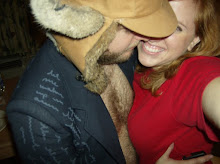"If Christianity hadn't taught anti-Semitism and hatred of Jews, the Holocaust wouldn't have happened." Barnett quotes Elie Wiesel here..ouch. I have to say, I can't disagree. No one can really know I suppose, but the evidence seems to be there. Hundreds and Hundreds of years of Christian tradition taught anti-semitism without hesitation. Is it because I live in a post-holocaust world that this seems absurd? I guess not really since there are many Christians today that are anti-semitic and believe the Jews need to be converted.
Christians certainly are not guiltless when it comes Holocaust. The Church failed to resist and rescue. If only it had been more vocal early on, what could have happened? What if more Churches pulled together and did as the Le Chambon? AT least more lives have been saved. Many professed Christians campaigned for the Nazi party, worked in the camps, and even helped to murder their Jewish neighbors. It is disturbing.
I do, however, have to disagree with Arthur Cohen when he says, "For the non-jew the genocide of the Jews is an objective phenomenon which, on the face of it, by its definition appears to exclude him." It is true, Christians were not the object of genocide and I do not mean to demean the vicious attack of the Jewish people, the horrid things they endured or the meaning of their suffering. I think, however, it is important to remember there were Christians, and other non-jews who suffered in the death camps. It is important that they are also remembered. There were Christians, who, though not the victims of genocide, were the victims of injustice. Additionally, as I said before, the Christians of the time were not guiltless. They failed. I as a Christian suffer the Holocaust as any sinner suffers the guilt of the consequences of sin. The Holocaust is not only historically real for Jews, though the scars may be more physically evident through tattooed forearms and the annihilation of a population, but it is historically real for those Christians who ask themselves after the Holocaust the same questions as Jews. How do we talk of God after this? Where was God? and Why didn't more Christians do something to intervene?
I am shamed. Christians are shamed by what didn't happen and what did happen during the Holocaust. And we are more shamed because most of us cannot say confidentally that we would have acted differently.
It is not the same Burden, or pain, Jews now must carry. They were victimized ruthlessly. They were betrayed by their neighbors. They were left alone.
Christians had strength in numbers, the strength of the Gospel, but not the strength of heart to do what needed to be done, and that is our burden to carry.


